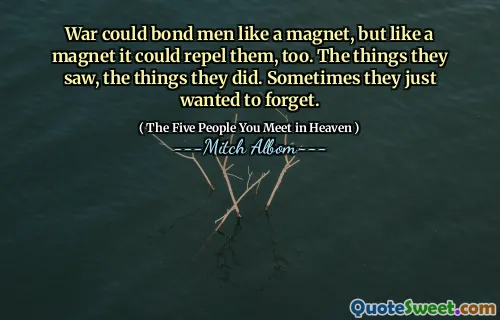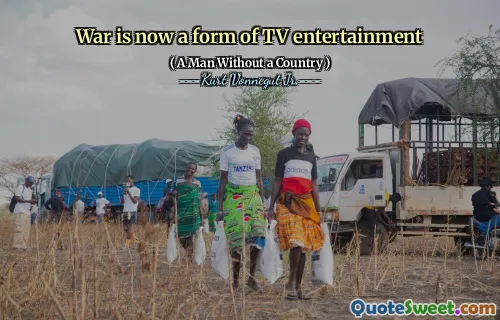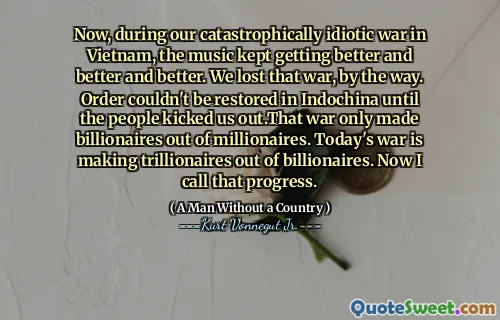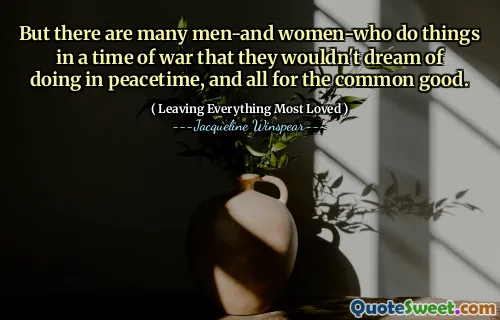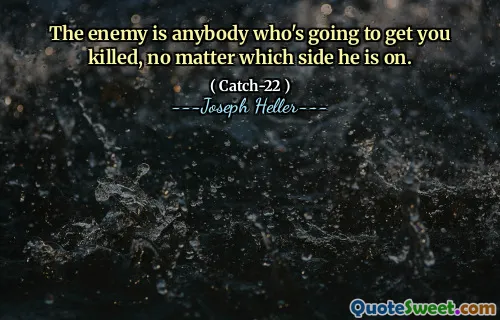It makes no difference what men think of war, said the judge. War endures. As well ask men what they think of stone. War was always here. Before man was, war waited for him. The ultimate trade awaiting its ultimate practitioner. That is the way it was and will be. That way and not some other way.
The judge in Cormac McCarthy's "Blood Meridian" expresses a profound view on the nature of war, emphasizing its inevitability and permanence. He suggests that human opinions about war are inconsequential, as war has always existed, transcending human existence and thought. This perspective highlights war as an intrinsic element of humanity's condition, one that predates human beings and will continue to endure.
By likening war to a fundamental aspect of life, comparable to stone, the judge indicates that it is an essential force in the world, waiting for humans to engage with it. This portrayal of war as an ultimate practice suggests that conflict is not a fleeting phenomenon, but rather a constant element of the human experience, illustrating a grim yet realistic understanding of our existence.
